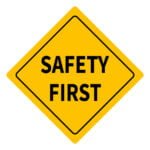
Security and safety are of utmost importance when it comes to flying in private aviation. While private flights offer convenience and expedience, they also prioritize safety and security measures to ensure a smooth and secure journey for passengers. Here’s an in-depth analysis of all the aspects essential to safe travel with private aviation.
Access to Private Airports (FBOs)
Exemption from TSA Lines
Private jet passengers are not required to go through the Transportation Security Administration (TSA) screening process that is mandatory for commercial air travel. By bypassing TSA lines, private jet travelers avoid the crowds and potential delays associated with checkpoints. This reduces the risk of breaches and allows for a more streamlined boarding process.
Personalized Security Checks
Although private jet passengers are exempt from TSA lines, measures are still in place to ensure the safety of the flight. Private jet operators and their flight crews are responsible for conducting their own security checks. These checks include inspecting baggage, verifying passenger identities, and performing safety checks on the aircraft before each flight. These procedures help maintain safety standards and ensure that only authorized individuals and approved items are allowed on board.
Confidentiality and Discreet Personal Security
Privacy and confidentiality are paramount in private aviation. Private jet charter services place great emphasis on maintaining the confidentiality of their client’s information. Passenger details, including identification documents, are collected during the booking process and shared with the operator in advance. This allows the operator to clear the necessary checks with national border authorities, ensuring a smooth boarding process without compromising on safety and security.
Swift Customs and Immigration Processes
ID and Documentation Requirements
Read More About Safety and Security Protocols Through the Federal Aviation Administration (FAA) Here
